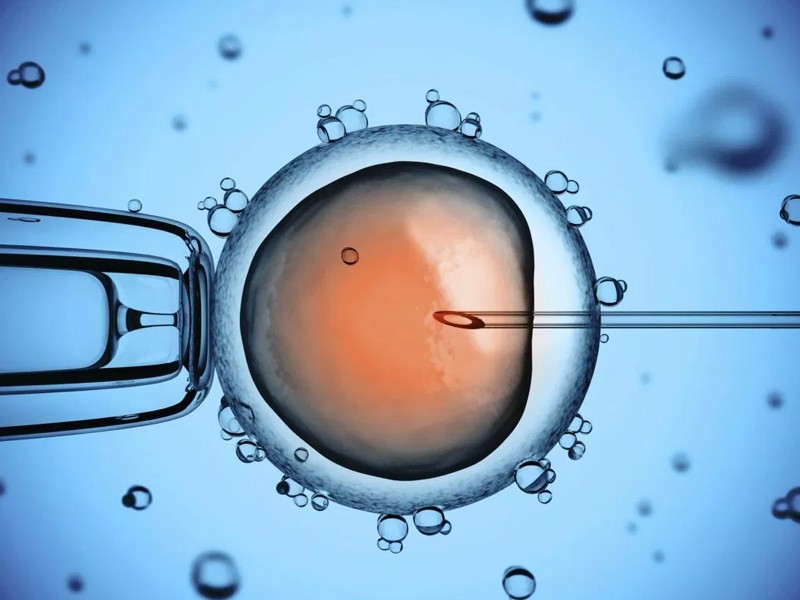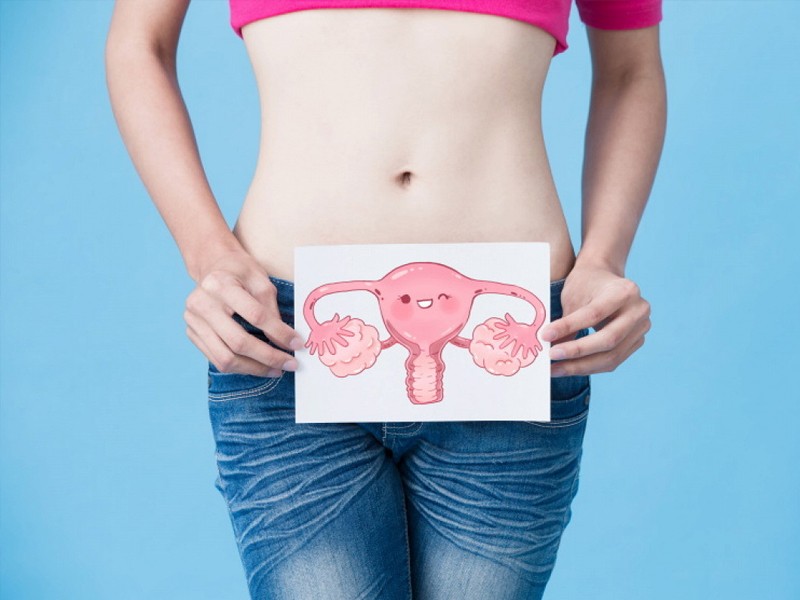ICSI procedure: features and possibilities

- What is the ICSI procedure and its differences from IVF?
- In what cases is IVF procedure by intracytoplasmic injection necessary and what are its contraindications?
- Features of ICSI technology
- Stages of the microinjection in vitro fertilization procedure
- ICSI procedure cost
- Factors influencing the success of ICSI
Modern propagative medicine is constantly evolving and finding new solutions to various problems connected with conceiving and gestation. In vitro fertilization is a common treatment for sexual dysfunction. IVF protocol is used if the reason for non-occurrence of pregnancy lies in the woman’s body. An ICIІ procedure is prescribed, If the problem is low sperm quality.
What is the ICSI procedure and its differences from IVF?
An egg is taken and combined with sperm in vitro for artificial insemination under the IVF protocol . The process virtually eliminates the influence of negative factors that, in natural conditions, interfered with conception. After receiving the embryo, it is placed in the female body and, if it is successfully attached to the wall of the uterus, pregnancy occurs.
Intracytoplasmic injection is also a fertility treatment. It is used in case of poor quality of germ cells of the future father. The embryologist selects the most viable and strong sperm and, using microinjection, injects it into the egg, during the procedure.
ICSI is used as an auxiliary technique that increases the effectiveness of IVF, so it is not entirely correct to compare these techniques. At the same time, the fundamental difference between the IVF-ICSI technology is that one, the most suitable spermatozoon is specially selected for fertilization. Whereas in conventional artificial insemination of sperm, a huge amount is taken and conception occurs from accidental sperm.
In what cases is IVF procedure by intracytoplasmic injection necessary and what are its contraindications?
The statistics on the use of the IVF-ICSI program show results better than conventional IVF.
Doctors recommend a combination of these methods:
- for the treatment of infertility, the cause of which lies in the low quality of sperm
- women over the age of 40
- when the efficiency of conventional fertilization in laboratory conditions is less than 50%
- with endometriosis and immunological factor of infertility
Infertility treatment, in which the method of in vitro fertilization is used together with the intracytoplasmic injection procedure, is also prescribed in cases where:
- there is a repetition of unsuccessful IVF protocols
- there is a decreased activity of sperm
- there is not enough sperm in the ejaculate
- semen contains less than 5% of normal forms of sperm
- there are diseases of the spermiducal ways
- the patient has antisperm antibodies
Before starting the ICSI protocol, the doctor gives a referral for genetic research, since pathologies of the male reproductive system can be hereditary. Also, the direction is given to preimplantation genetic diagnosis of the embryo to identify possible chromosomal diseases.
The IVF-ICSI procedure is a complex process that requires serious patient preparation. here It is a strong load on the body, during this technology.
Therefore, the method is contraindicated for people with such diseases:
- malignant neoplasms
- severe mental disorders
- complex somatic abnormalities
- HIV infection
- oncological diseases of the blood
- abnormalities in the development of the uterus, which make it impossible to carry a child
- severe diabetes mellitus
- severe anemia
- diseases of the circulatory and nervous systems
In each case, the decision to carry out the intracytoplasmic injection method is made by the doctor individually, based on the characteristics of the patient.
Features of ICSI technology
All procedures are used in reproductive medicine and embryology and require special knowledge and skills of a specialist. Special devices and tools are also required for work. The ICSI procedure is performed under a microscope. An embryologist engaged in artificial insemination must be as careful, since the success of an intracytoplasmic injection depends on this. To work with eggs and spermatozoa, special glass micro-instruments (microneedle and micro-suction cup) are used, which allow them to penetrate into the middle of the cell without harming it. They are attached to special manipulators, which are operated by the embryologist. The sperm obtained from the ejaculate is examined by a doctor, after which the fastest and most morphologically correct sperm is selected.
Stages of the microinjection in vitro fertilization procedure
The IVF-ICSI technology includes the following stages:
- stimulation of the female reproductive glands with hormonal drugs
- retrieving the egg from the follicles
- selection of germ cells of the future father
- fertilization by microinjection method
- transfer of the embryo to the female body
Directly the method of intracytoplasmic injection consists of the following stages:
- immobilizing the sperm by interrupting its tail with a microneedle
- suction of sperm into the microneedle
- fixing the oocyte on a micro-suction cup
- piercing the egg membrane with a micro needle and introducing a sperm cell into the cell
Artificial insemination using the ICSI method allows doctors to control the process of conception as much as possible. Thanks to the careful selection of the most suitable germ cells for both women and men, as well as targeted fertilization, the intracytoplasmic injection procedure shows efficiency at the level of classical IVF even in patients with severe male infertility.
ICSI procedure cost
The IVF-ICSI method is the only way to give birth to a long-awaited baby, for many families. Couples, which are interested in the details of artificial insemination with intracytoplasmic injection, must understand that the sophisticated technology used to combat infertility cannot be cheap. In addition to specific manipulations that are performed by highly qualified specialists with special skills, special equipment and medical support required to prepare the body for the IVF-ICSI procedure are also expensive. The final price of the procedure depends on the number of services that are prescribed by the doctor, based on the examinations and diagnostics performed.
Factors influencing the success of ICSI
The world practice of IVF-ICSI shows that this technique allows achieving fertilization in 20-60% of the procedures performed, and in some cases its efficiency is 80%. After ICSI, the percentage of fertilized eggs is about 70%. And the risk of not fertilizing a single egg is less than 5%. In this case, the probability of normal development of the resulting embryos is equal to 90-95%.
The success of the technology directly depends on the characteristics of the health and lifestyle of the couple. Overweight, stress, smoking, and drinking alcohol negatively affects the state of the germ cells of future parents. Also affects:
- age
- hormonal background of patients
- the presence of concomitant diseases
The quality of the sex cells and the condition of the woman’s reproductive system are especially important. The resulting oocytes should be healthy and viable, and the endometrium of the uterus should be ready for embryo implantation.
An important factor in achieving the desired result with ICSI is the ability of the embryologist to provide the cells with optimal conditions for their normal existence. Temperature conditions are especially important. The egg moves to the uterus at 37 degrees Celsius in natural conception. Therefore, it is very important for fertilization under artificial conditions to ensure the required temperature regime.
About 20 years ago, only donor sperm were used for severe forms of male infertility. Today, thanks to ICSI, thousands of couples have become happy parents of a genetically native child!


